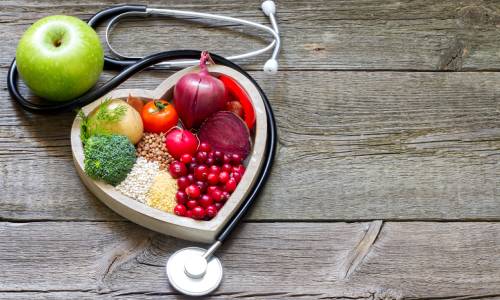Eat your way to a healthier heart

Diet and lifestyle can influence your susceptibility to conditions like high blood pressure, high cholesterol, obesity and type 2 diabetes – all of which may lead to heart disease. Professional head of nutrition, Natalie Braithwaite, outlines the most important things to help you make heart-smart food choices:
1. Reduce your intake of bad fats
Some types of fat are healthier than others. A diet high in saturated and trans-fats causes cholesterol to build up in your arteries (blood vessels). This puts you at risk of heart attack, stroke, and other major health problems.
Avoid or limit foods that are high in these fats. Polyunsaturated and monounsaturated fats (that come from vegetable sources) and essential fats (found in oily fish, nuts and seeds) have many health benefits and eaten as part of a balanced diet can help to reduce high cholesterol.
2. Fruits and vegetables matter
Eat less fatty meats and more plant-based foods, such as fruits and vegetables. Not only are fruits and vegetables low in calories and high in fibre and antioxidants, they’re also packed with potassium which can help keep blood pressure in check.
3. Eat the right grains
Eat a diet high in whole grains (which include cereals, crackers, rice and pasta) and starchy vegetables (such as peas, sweet potatoes, corn, winter squash, and lima beans). These foods are high in the B vitamins, iron, and fibre which are essential nutrients for heart health.
4. Put down the table salt
Eating too much salt can increase the risk of developing high blood pressure. Having high blood pressure increases the risk of developing coronary heart disease. We often get our recommended daily intake of salt through the foods we eat. There’s no need to add table salt to your meals.
Last updated Tuesday 2 January 2024
First published on Thursday 27 August 2015
